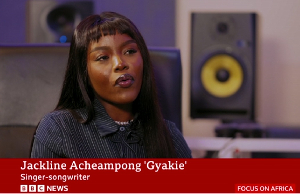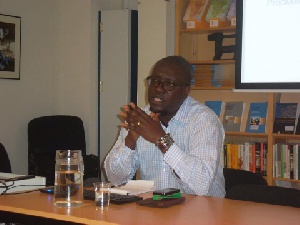Afro-China Academic, Dr Lloyd Amoah, says a decision by the Government of Ghana to seek assistance from the International Monetary Fund to fix its economy amounts to going back to “economic ground zero”.
Ghana’s President, Mr John Mahama, after a meeting with his Economic Advisory Committee, “directed that immediate initiatives be taken to open discussions with the International Monetary Fund and other Development Partners” in support of his country’s “programme for stabilisation and growth”.
Bloomberg recently said Ghana’s currency, the Cedi, was the poorest performer on the global market. According to the Bank of Ghana Website, the USD is selling at 3.0350 and being bought at 3.0234 against the Ghana Cedi on the interbank forex market.
The Cedi has lost about 30 percent of its value against the Dollar since the beginning of the year. Bloomberg reported the same figure recently. However, the Financial Times says the Ghana Cedi has plunged by 40 percent. Inflation is currently 15 percent in the West African country.
The oil-producing country’s total public debt also keeps soaring. In his recent mid-year budget review, Ghana’s finance Minister, Seth Terkper, told Parliament that “Ghana’s total public debt stock, which stood at GH¢35,999.64 million (US$19,150.78 million) as at end-December 2012, increased to GH¢52,125.91million (US$24,021.16 million) at the end of December 2013”.
Terkper said: “Of the total public debt stock, external debt was GH¢21,545.72 million (US$11,461.71 million) while domestic debt amounted to GH¢27,132.7 million (US$12,559.45 million), representing 47.72% and 52.28% of total debt, respectively”.
Also the rising prices of fuel and utilities sparked a wave of protest marches by Organised Labour and other unions in the country recently. The IMF assistance is therefore aimed at helping the worsening situation.
But Dr Amoah believes going for IMF assistance is equal to erasing the achievements of past governments.
“Once we go to the IMF and conform to its policy prescriptions, the final nail will have been driven in the Kufuor Legacy......it is all but gone.....in effect we [are] back to economic ground zero,” he wrote on his Facebook page.
“...My view is that in a transition economy, policy continuity and consolidation over the long haul is far more critical than soaring moments of policy triumphs that last for less than a decade.....great leadership must express itself also in the shrewdness deployed in teleguiding the way the immediate future pans out in the leadership that subsequently emerges....In this sense Kufuor, Rawlings and Nkrumah share this tragedy....every key move of theirs has essentially been undone,” he said.
General News of Sunday, 3 August 2014
Source: starrfmonline.com
IMF bailout option takes Ghana to “economic ground zero”
Entertainment












